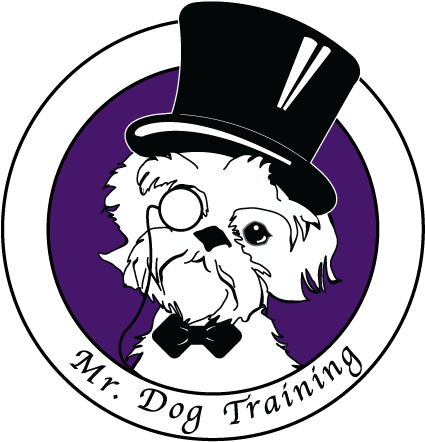Service Dogs, ESA’s, and Therapy Dogs, Oh My!
There is quite a bit of confusion about the difference between service dogs, emotional support dogs (ESAs), and therapy dogs and the places that they are permitted to enter and the certification(s) they must carry.
As a trainer I get phone calls weekly from people who want their dog to become a service dog, therapy dog, or ESA but are not only confused about where to start but what each title actually means. Allow me break it down for you…
Service Dogs are trained to perform certain tasks and to do work that their handlers’ disabilities prevent them from doing such as picking up objects that fall on the floor, turning on light switches, act as their eyes if their handler is seeing impaired and even alert their handler to a drop in blood sugar for diabetic handlers or that a seizure is about to happen if their handler suffers from epilepsy, and so on. Service dogs work as part of a team with their disabled partners to help them attain the safety and independence from which their handlers’ disabilities would otherwise limit them. Offering emotional support to someone with anxiety does not fall under the category of service dog but a dog who can recognizing a mental health crisis and can then applying deep pressure to their handler does.
The Americans with Disabilities Act (ADA) protects the rights of people with disabilities to be accompanied by their service dogs in public places, like businesses, restaurants, grocery stores, hotels, etc.
Please note that it is illegal, and unethical, to try to pass your dog off as a Service Dog if he or she is not. Far too many service dogs lose their ability to work and suffer from anxiety after incidents with dogs who are not service animals in public places where only service animals are permitted.
Interestingly, there is no national registry for service dogs or any certification required despite the large number of online “certifications” you will see if you do a Google search…these are all SCAMS!!!!
The only two questions a business may ask to determine if a dog is a service dog are:
Is the animal a service animal required of a disability?
What work or task has the animal been trained to perform?
It is important to NEVER talk to, pet, or engage with, including staring or smiling at, a service dog when in public.
Emotional Support Animals are not required to undergo specialized training. Their primary roles are to provide their guardians with emotional comfort. People who suffer from anxiety may find an ESA helpful and only need a doctor’s note or “prescription” for their pet to be their ESA. It is important to know that any online companies who claim to “certify” your ESA are a scam; only your doctor can proclaim that your dog is, in fact, your ESA.
While the ADA does not grant guardians of emotional support animals the right to be accompanied by these animals in establishments that do not permit pets, the Fair Housing Act does allow for guardians of emotional support animals to reside in housing that has a “No Pets” policy, as a reasonable accommodation.
Therapy Dogs also receive extensive training but have a different type of responsibility from service dogs. Their job is to provide psychological therapy to individuals other than their guardians/handlers. Individuals such as nursing home, hospital, or hospice patients or children with special needs or behavior challenges can all benefit from a Therapy Dog. These dogs have stable temperaments and should be relaxed, easy-going, and should enjoy the company of others.
Therapy dogs are usually trained by their guardians, but must meet the standards set by a particular organization to be registered and participate as part of the respective organization.
Please note that therapy dogs do not have the same jobs or legal designation as service dogs. Some institutions offer registered therapy dogs access for the benefit of patients, guests, students, customers or clientele, the handlers or owners of therapy dogs do not have the same rights as Service Dog guardians/handlers to be accompanied by these dogs in places where pets are not permitted.
Sara Sokol is owner of Mr. Dog Training in Brunswick Maine; A positive reinforcement dog training facility, offering both virtual and in person classes, that has been voted best training in Maine for 8 years in a row..
